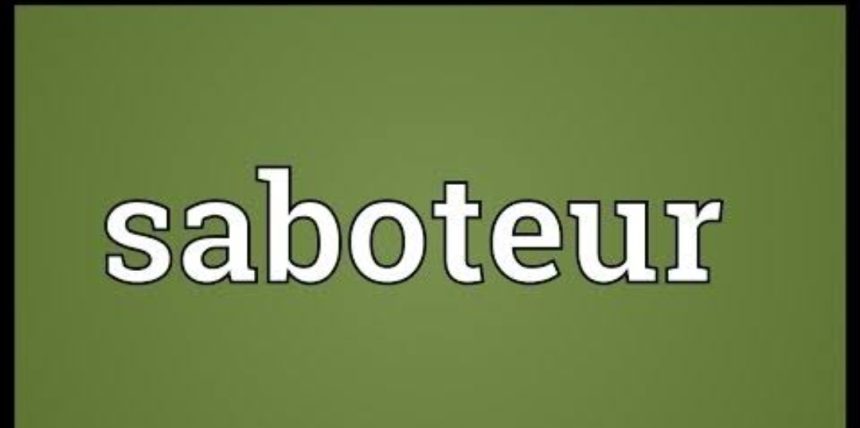The silent saboteurs at Maple Grove High School. Mathematics was a subject many students found challenging. Among them were Jide and Ayo, two seniors who had developed a strong dislike for the subject. Though both were intelligent, their previous struggles with math had left them frustrated and disinterested. Instead of seeking help to improve, they began spreading their negativity to others. What saboteurs they are!
The campaign of the saboteurs against math was subtle but effective. ‘Why bother with math?’ Jide would say to younger students. ‘It is so hard, and you will even use it in real life.’ Ayo added, ‘Unless you are planning to become a scientist or engineer, it is a waste of time. Focus on subjects that actually matter.’Their words began to take root, especially among younger students who looked up to them. Many started skipping math practice, avoiding assignments, and paying less attention in class. Even those who had been enthusiastic about math began to second-guess their abilities, fearing failure.
The ripple effect reached their teacher, Mrs. Adenike, a passionate educator who noticed a sudden decline in her students’ interest and performance. She knew something was wrong and decided to investigate. During a class discussion, she asked her students to share their thoughts about math. The room fell silent, but eventually, some confessed that they felt math was unnecessary or too difficult. Some of the saboteurs even said that King Sunny Ade ‘did not do math in school but he is successful.
Mrs. Adenike realised this mindset was being fueled by misinformation and negativity. Determined to change the narrative, she devised a plan to reignite her students’ enthusiasm for math.The following week, she invited a guest speaker, Mr. Olamide, a successful entrepreneur and app developer who had once been a struggling math student. He shared his journey, explaining how math had been the foundation of his career. ‘Math is not just about numbers,’ he said. ‘It is about problem-solving, critical thinking, and creativity. It’s everywhere—in technology, business, and even in your everyday decisions.’
The students were captivated, especially when he demonstrated how mathematical concepts were used in designing popular apps and managing finances. His story struck a chord with many, including Jide and Ayo, who began to see the subject in a new light.To further inspire the class, Mrs. Adenike introduced interactive activities like math games, puzzles, and real-world applications. Slowly, the classroom atmosphere shifted. Students began participating more actively, supporting each other, and even seeking help when they struggled.
Jide and Ayo eventually apologised for their earlier behaviour, admitting that their own frustrations had blinded them to the importance of math. They decided to work harder and even volunteered to tutor younger students, helping them overcome their fears.
This experience taught the students a valuable lesson: discouraging others out of personal bias can limit not just their potential but also the collective progress of a community. By changing their mindset, they discovered that math was not an enemy but a tool for unlocking opportunities and shaping a brighter future.
- See also https://readyreaders.com.ng/2025/01/24/the-friend-called-mathematics/↗




